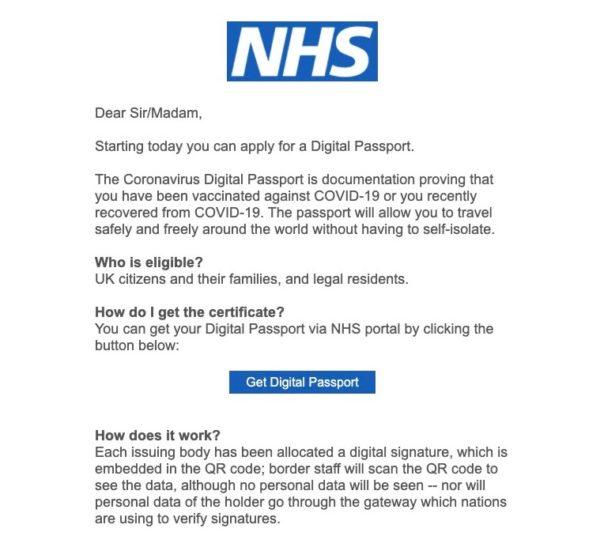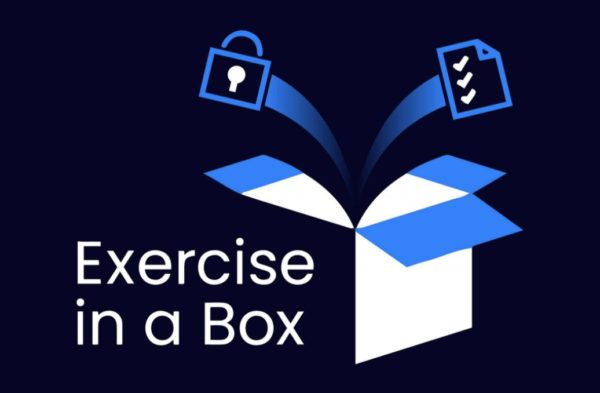NHS Digital Passport
There have been reports of fake NHS email and text messages requesting that you can apply for a coronavirus ‘Digital Passport’, allowing you to prove your vaccination status and travel safely without the need for self-isolation. This email takes you to a convincing looking but fake NHS website and asks for your personal and payment details for a small ‘admin fee’.
This phishing email was reported via the NCSC’s Suspicious Email Reporting Service and they were able to take the scam website down after just 27 minutes from the time of reporting to them.
However, these emails will likely reappear so please continue to report any suspicious emails to NCSC by forwarding emails to report@phishing.gov.uk
You can manage your vaccination appointments and receive a confirmation of your vaccination status on the NHS Inform Scotland website. You can request a printed copy of your vaccination status online or by calling the COVID-9 Status Helpline.
- How to get a record of your COVID-19 vaccination status
- You will never be asked to pay to receive a copy of your vaccination status.
- To speak to someone about receiving a document confirming your vaccination status, you can call the COVID-19 Status Helpline on 0808 196 8656
If you have taken a COVID-19 test at some point, you may receive a text inviting you take part in a study into the long term effects of COVID-19. This study is in association with Public Health Scotland, NHS Scotland, Scottish Government and the University of Glasgow. You can read more about this study and how your information will be used on the COVID In Scotland Study website.








